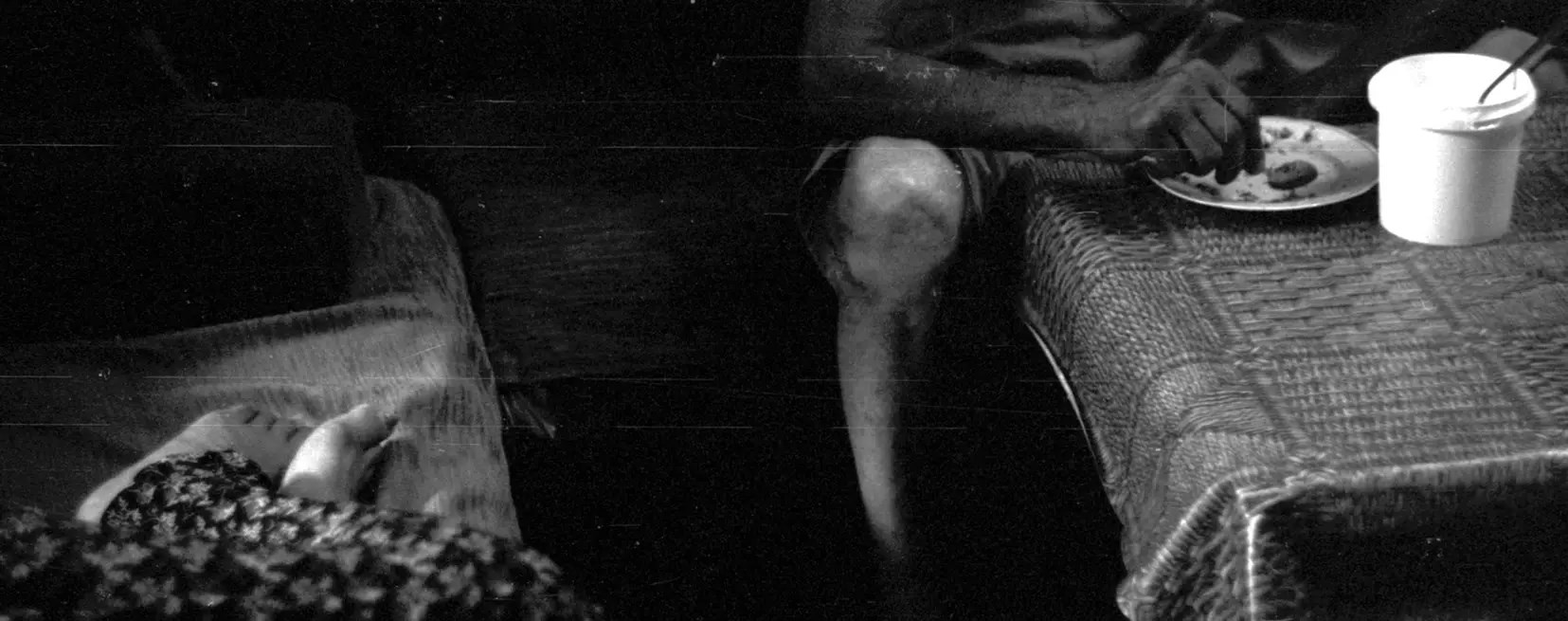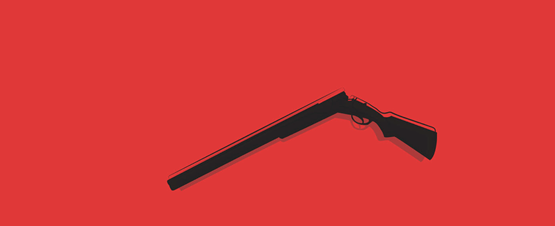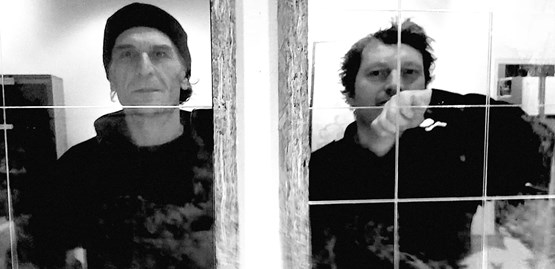
The Locusts of the End Times
11.03.2022 | 5 Min to readMy relatives taught me how to find another way before the whole country embraced the methods of cellular and online communication.
The is only one point of reference, and it is the path leading to the settlement for IDPs. You do not need to know the name of the street or the number of the building or apartment. All you need is this combination of words: “I’m looking for the refugee residences.” And everyone will show you the way, no questions asked. Our entire genealogy is squeezed inside the walls of such buildings scattered across Georgia’s cities. This type of settlement is known as Paipuri in Zugdidi, Shmo in Poti, Gumathhesi in Kutaisi, and Aieti in Tbilisi. We’re all over the place. There is no single town in the country without a IDPs housing unit where I would not be able to find at least one relative. But if there’s anything the Ministry of IDPs knows how to do well is throw you off the track, a little. The IDPs occupying any old building that ends up under the Settlement Initiative Program may be resettled, from Shmo to New District, for example, or from Kolkheti to the so-called Chinese Olympic Village. But what will never change is the composition, that is, the stratum bringing together people of common descent who are always treated by the state as a separate group, the locusts of the end times. This group could have easily robbed state property, launch surprise attacks on former kindergartens, schools, factories, and hotel, seize control over the buildings they occupy, stake out their claims to particular residential spaces, and swamp long and dark hallways with myriad personal effects snatched from the claws of war. These subversions, hypothetically committed by IDPs driven by the survival instinct, have been combined with the attitude of the rest of society toward them eventually to give birth to a brand new subculture, one of micro-zones dwarfed by the abundance of building complexes and unable ever to become part of the overall urban environment.
Of all the settlements I have ever visited or lived in, a slightly less contradictory picture was once found in the design of Kolkheti Hotel which naturally blended into the hubbub of Railroad Station Square swarming with honking cars, boisterous streetwalkers, and aggressive boozers. Every floor in this hotel sported the longest and dirtiest hall in the world. And every corridor had doors installed three or four meters apart. And behind each door there was a IDPs family of three or four from Sokhumi or Tskhinvali packed like sardines into a 15m2 space. My relative and best buddy happened to live in the furthest room at the end of the hall. And that promised a journey through the longest hall in the universe to see him—touch luck on top of the hopelessness naturally reigning here in the first place. The hall, reeking of mice and mold, caused dizziness. At the end of the tunnel there was a shimmering light, the only sign assuring me that the outside world still exists and has not disappeared as I entered here.
My buddy and I frequently stood in the tiny balcony attached to his 15m2 his room. The balcony was crammed with all kinds of knick-knack, so there was not even room to swing a cat. But we stood there, observing the jammed square swarming with people. We could stand this view, and the hysterical noises reaching us from down below, for a few hours more, but since there was no horizon in sight, my buddy had just one chance to take a break from the images of the railroad station—he would look up into the sky. If other residents of the building were taking to the bottle, my buddy, driven by this escapism and his lengthy observations of the sky, took a fancy to astrophysics. He would tell me exciting things about space that I had never heard before. In the evening, the square would usually shake off people and noises, with only garbage—attracting colorful plastic bags gracefully floating around it—remaining as a sign of human presence. This image, as seen from the IDPs housing unit with a ruined façade, alluded to the set of The Book of Eli, leading us to expect Denzel Washington to appear from around the corner with a machete over his shoulder, to round up IDPs marching to reclaim Sokhumi. We the IDPsat the initial stage of our exile might have followed him, though not now.
Amid the unbearable existence when the country returned to its prehistoric past, there was a time when the locusts of the end times, sheltered in the schools and kindergartens of various Tbilisi neighborhoods, seemed to waiting for a signal to pour out and—collecting along the way their kin at the IDPs housing units in Gori, Kutaisi, Samtredia, Senaki, and Poti—boldly march to cross the border by the Enguri River. But that never happened, because they all failed to free themselves from the naïve fairytales about return. They failed to knock over tables loaded with dominoes and backgammon dice and proclaim to everyone: “They’re lying to us! No one will give us back on September 18! No one will give us back December 3 and June 30!”
Some have succeeded in returning, though, like a very particular group of IDPs from Abkhazia, those considered to this day as a standalone stratum. I must admit that, of all the interpretations of DG, the abbreviated form of Dolce and Gabbana, Displaced from Gali is by far the wittiest. Yes, the dissonance is ridiculous, but the DG—who, throughout their lives have seen more than any thriller director—can easily relate to the American film industry, if not the fashion house. They can, in a heartbeat, mentor any character from any Hollywood blockbuster and deliver survival masterclasses.
They can teach how to escape from a 15-meter hole, how to sneak around an enormous Russian military base and shame Russian soldiers by waltzing across the border, how to use a cemetery near the border to disguise his identity by turning into a mourner, a gravestone, or a tree, or—if things are getting out of hand—into the dead guy.
Their training in overcoming obstacles has its roots in a period just after the war, when their sizeable group opted to stay near the conflict zone and take abode in Paipuri, a settlement for IDPs in Zugidi. Initially, they justified their decision by their desire to be closer to the graves of ancestors and their special psychological and emotional attachment to the dead. My advice to those who think that the departed don’t need protection is to listen carefully to what my 80-year-old grandma has to say about it. She kept in touch with Georgia both on the other and this side of the Engruri until she wound up facing the existential choice between the graves of her husband and son. Eventually, she decided in favor of her son’s grave and living descendants, though I’m still unsure about her resolve. I have a nagging feeling that, one day, I won’t be able to reach on the phone, in which case I’ll have to look for her one the other side of the River Enguri.
After the IDPs finally got to visit the graves of their loved ones, Russians took over border control and built an enormous military base right on the border. And now, they are—right at the border checkpoint, for the whole world to see—killing Giga Otkhozoria, drown in the River Enguri locals who, unable to obtain passes, are trying to bypass border control and to make it to Zugdidi. But no punitive cruelty can stop this free flow of the desperado DGs. Their gatherings in old stinky or newly built settlements for IDPs always smell like total conspiracy. No cup of coffee is enjoyed without conversations about Abkhazia, and no line to a Liberty Bank ATM is formed without planning another subversion. And since they are highly unpredictable, we might as well plan ahead and include in the national security paper a provision stipulating that, in case of another war, the DGs shall serve us as tour guides. After all, failure to make use of this asset of national importance would be a big goof-up on the part of authorities that, for the past 30 years, have been anyway losing everyday battles for every single IDP waiting in vain for a promised residence, and every single compact settlement household still forced to live in unbearable conditions. They are losing battles for all those who, from time to time, require attention, calling for help local television stations, and set all their hope on TV reports and online stories—because now, fortunately, we, just like the rest of the world, can be googled.
You can google our protest gathering in the yards of our newly or ruined settlements, with children in our arms, and our inscriptions like “Next year in Sokhumi!” You can google our long lines to pick up 45 GEL monthly assistance, and comments to videos depicting it all. You can google our endless exile. You can google us living in the past in one coastal city. You can google refugees with Abkhazian last names who now share our fate.
I could never figure out how Dato Khajimba [an Abkhazian last name] ended up in a dorm for IDPs in Poti until I grew up. His presence in Poti is yet another proof that everyone is a loser in war, and last names and ethnic backgrounds were just a lame excuse to start a war and justify it. Sokhumi’s strong international mentality makes its presence felt even in figures of speech and adages like “Dude, I was born and raised in Sokhumi” [said in Sokhumi-style Russian]. That’s what my uncle says when he wants to emphasize that being from Sokhumi is above any micro-national idea.
It follows that we did not plan for any of it, neither the many cemeteries and IDPs settlements on this side of the River Enguri, nor the war-ravaged infrastructure on the other side of the River Enguri. Consequently, it makes perfect sense that some Badzaghua or Papaskua [Georgian last names] works on the restoration of devastated infrastructure in Gagra or Bichvinta, while some Khajimba or Arshba [Abkhazian last names] stand in long lines to claim their 45 GEL monthly assistance at a Liberty Bank ATM. Deep inside, everyone knows that, unless we reach out to one another, neither that infrastructure can be revived, nor this 45 GEL assistance will suffice.
Everyone knows that, including that neighbor who, at 7 in the morning nearly banged down my friend’s door at a dorm for IDPs, and woke him, just to ask:
“Did you get your refugee money?”
And, after hearing an answer in the positive, broke the news to him:
“Don't you fucking spend it all in one place.”

We Recommend

Hold-Up Gali | Beso Papasqua
14.06.2021




